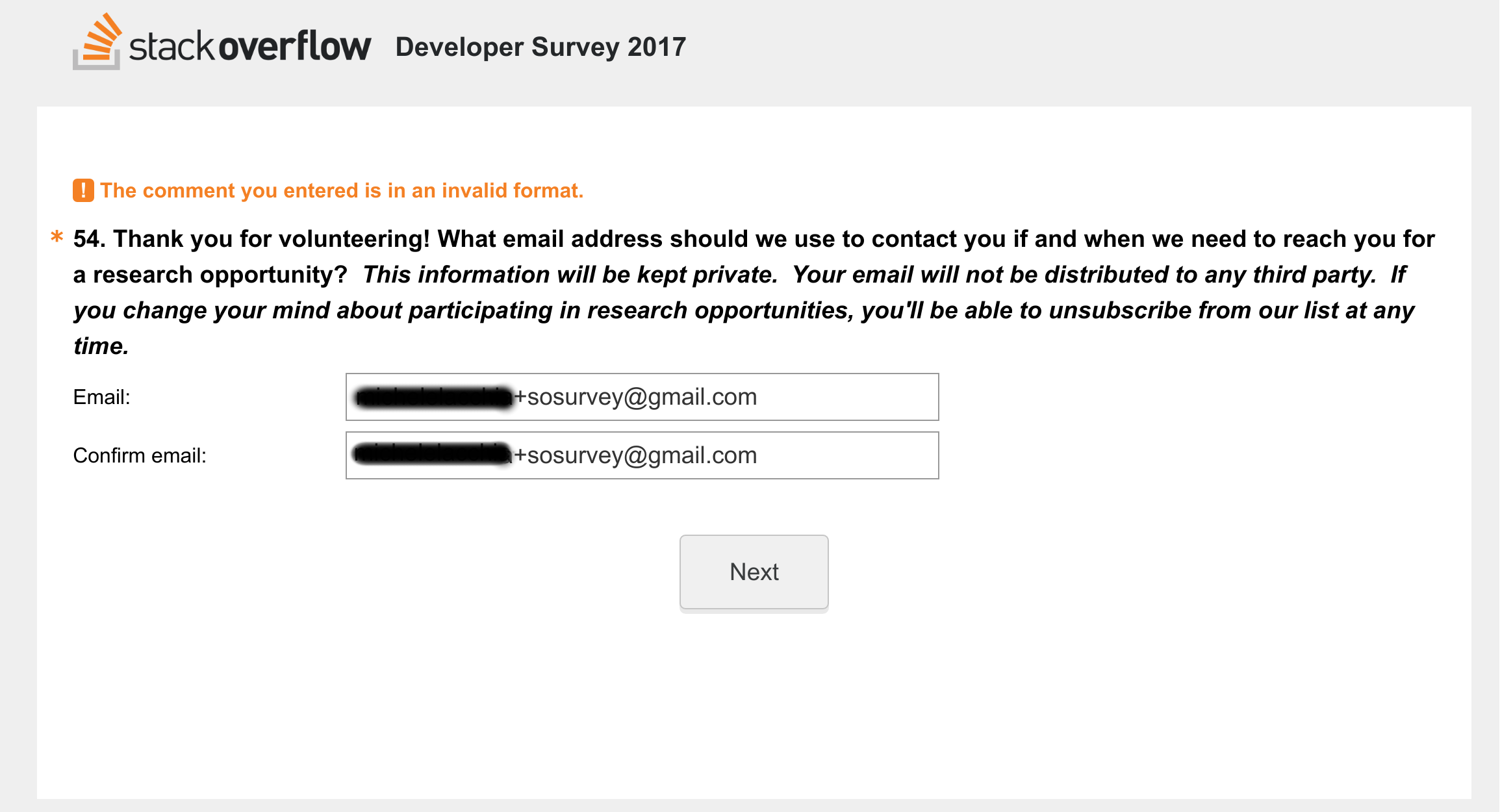- Which of the following best describes the highest level of formal education that you’ve completed?
Some of the answers here don't make sense. Specifically "Some college/university study without earning a bachelor’s degree" - if you select this answer, doesn't it mean that you've successfully completed at least secondary school? I suppose this could mean that you went to a post-secondary trade school or a college that awards Associates Degrees, but these should probably be two separate options next year.
- Which of the following best describes your main field of study (aka “major”) in college or university?
Most of these groupings make sense. "Management Information Systems" and "Psychology" as stand-alone entities don't, to me. I don't know if this is generally true, but at my university, MIS was a degree program in the business college and Wikipedia indicates this is common. As for Psychology, it's usually considered a social science and is called as such in its Wikipedia article. Looking at the article for social science, some humanities (like history and linguistics) are also considered social sciences.
I think that if you read the list from top down, some people who actually studies what is being identified as a social science may check humanities simply because it's first in the list. Someone who studied Psychology may also miss that and check either the humanities or social science option.
- How often do you work from home or remotely?
I found this misleading. I have the capability to work from home (officially, up to 2 days a week) as a benefit from my employer. However, I choose to not regularly work from home unless there's something I need to be at home for. "It's complicated" doesn't seem right since it's not complicated. I chose this option, simply because "never" isn't right and "a few days each month" is too much.
- Which of the following best describes the industry you work in? This information will be kept private. If your employer is involved in several industries, please choose the one most relevant to your area of the organization.
Another poorly worded question.
My company provides software as a service for pharmaceutical and medical device companies for clinical trials. There's really no one else who can use our software or that we market to. If asked, I work in the software industry and my company is a software company. However, my employer is involved in the pharmaceutical industry.
Really, there's a disconnect between the "what industry do you work in" part and the "if your employer is involved in several industries" part.
- Which following best describe you? Please select all that apply.
All of the things listed are technical in nature. Nothing about process improvement (agile coach, ScrumMaster), project management, or leadership/management. It's not clear if these should go into the "something else" box or not.
- On which of the following sites do you maintain a profile, CV, or resumé? Please check all that apply.
Stack Overflow Jobs isn't listed? And there's no indication as to if this should go into the "Some other site(s)" box or not for any reason. I listed it just because it seems to make sense.
- Which of the following methodologies do you have experience working in? Please select all that apply.
This question is all kinds of broken. Agile is listed, but so is Scrum (a specific Agile framework), but others like Disciplined Agile Delivery, Nexus (scaled Scrum), and other agile methods aren't. PSP/TSP isn't listed. CMMI isn't listed. Domain-Driven Design isn't really a methodology in the same sense that Scrum is. You call ISO 9001 and IEEE 12207 "waterfall methodologies", but I can create an agile implementation that is compliant to ISO 9001 and get it through a CMMI appraisal.
- What version control system do you use? If you use several, please choose the one you use most often.
Although I don't use it anymore, I fully appreciate the inclusion of ClearCase.
- Which of the following libraries, frameworks, and tools have you done extensive development work in over the past year, and which do you want to work in over the next year?
I thought that this was pretty lacking. I took a look at the top tags on Stack Overflow. No PHP, Python, or Ruby frameworks. Ruby on Rails is on the first page of SO tags, as is Django.
Randomized Questions
I didn't get any really interesting random questions. :( Personally, I'd rather have a crap ton of questions and then have a lot more data rather than randomly selected questions at the end.
